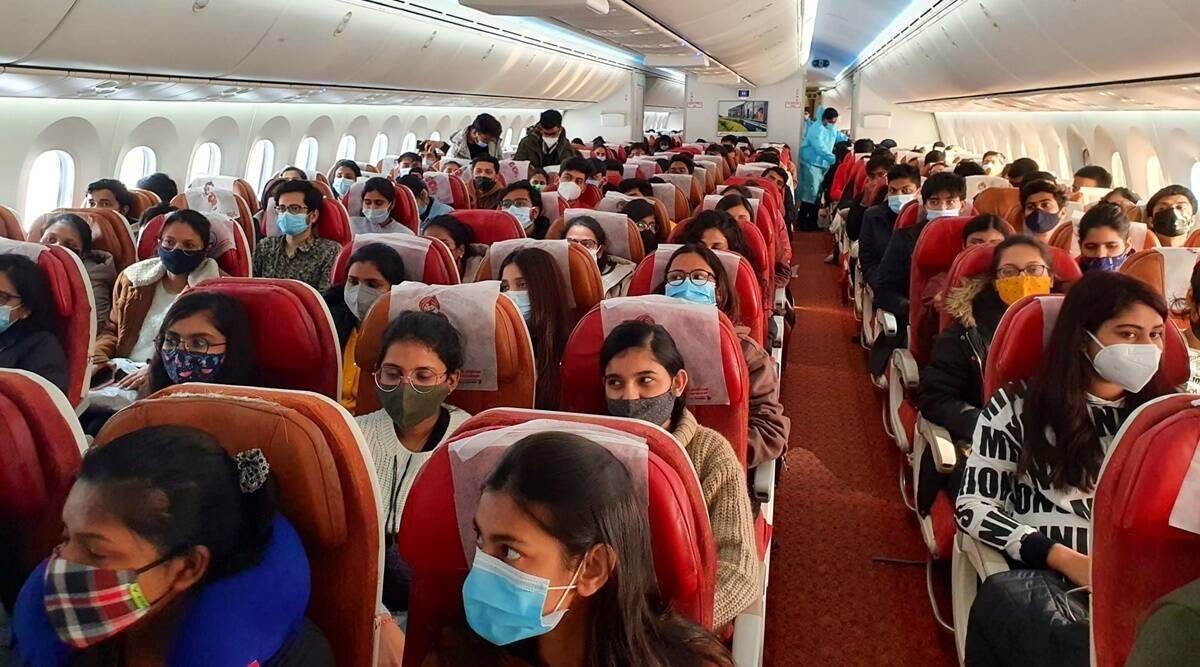 Students are hopeful that NMC would come up with a solution soon for the medical students in Ukraine, as directed by the Supreme Court of India in April. (Representative image)
Students are hopeful that NMC would come up with a solution soon for the medical students in Ukraine, as directed by the Supreme Court of India in April. (Representative image)In the four months after his evacuation from war-torn Kharkiv in Ukraine in February, Omkar Venkatchari, a third-year medical student at the Kharkiv National Medical University, took online classes and wrote his end-semester exams. He is also currently preparing for KROK-1, Ukraine’s qualifying medical examination. But war draws on and going back seems highly unlikely. So, he is considering moving to a different country to finish his course. His peers are too.
“The (consultancy) agency through which we (Indian students) went to university conducted a poll last week. They asked if we wanted to continue in Ukraine or leave for other countries and it was a unanimous yes,” he said.
Venkatachari, who is currently living in Pune, notes that while it is a choice, moving brings with it its own complications. “There is no clarity on which country, documents, qualifying exams, equivalence. Will we have to learn another language? What are the costs?”
Parth Dixit from Allahabad, a first-year student at the Bokovinian State Medical University in Chernivtsi, also echoed the desperation.
Subscriber Only Stories
The area surrounding his university was not entirely affected, but he had kept “shifting as an emergency option”. With tragic news coming in from Ukraine though, he might make the choice.
“When we came back to India, there was still hope. They said online classes would go on for a while and by June, we could return to university. Even today, the area in which our university is located is not affected as much. They are saying we could possibly resume offline classes in September, but we (students) are not sure if we want to return,” Dixit said, adding that “uncertainty” in Ukraine with news of “universities being badly affected” has led to entire campuses of students shifting to other parts”.
War-torn Ukraine is under severe stress and that translates to additional costs, which many students cannot afford to bear.
Pranjal Kaushik, who is currently at his home in Bhilai in Chhattisgarh, is one such student enrolled at the Dnipro State Medical University.
“We had rented out a flat in Ukraine with friends. We would buy groceries locally and cook on our own, but now, food prices have shot through the roof. And it is not just food. Locals have lost jobs and business; the rents will be higher for international students. Besides, it will be unsafe as well,” said Kaushik.
Moving to another country bring with it financial and logistical concerns as well.
Mudit Mehrotra, a third-year student from the Dnipro State Medical University, is currently in Varanasi. He said the consultancy agency that worked with students to bring them to Ukraine offered options to other European countries like Romania or Kyrgyzstan, which would cost Rs 6 to 8 lakh. However, a country like Poland, would be more expensive, costing anywhere between Rs 10 to 12 lakh annually.
“The entire point of our parents sending us to Ukraine after not getting a government medical seat here was looking for a cheaper alternative, since private medical colleges are too expensive here (India),” he added.
Dr Audhoot Nidgude, a representative of MD House, the agency that recruits students for the Bokovinian State Medical University, said: “Education was continuing uninterrupted online and we thought it was only a matter of time before they went back…There are several issues in transferring midway. We have seen this earlier when some of our students moved to Armenia during Covid-19 two years ago. The students were told their degrees and transfer won’t be recognised here and they fell into a bigger problem. If a student wants to move, they need their documents and transcripts. We were also waiting for semester exams to get over so the situation gets clear with time.”
He added that he was hopeful that the National Medical Council (NMC) would come up with a solution soon for the medical students in Ukraine, as directed by the Supreme Court of India in April.
“We are waiting for a few more days or will consult our students to take a decision for their future now before next semester begins,” he said.
- The Indian Express website has been rated GREEN for its credibility and trustworthiness by Newsguard, a global service that rates news sources for their journalistic standards.

